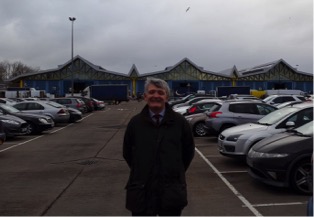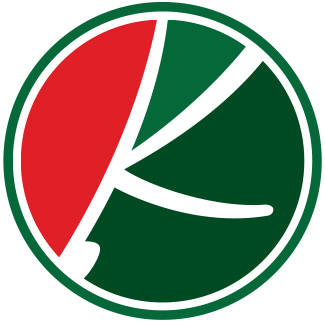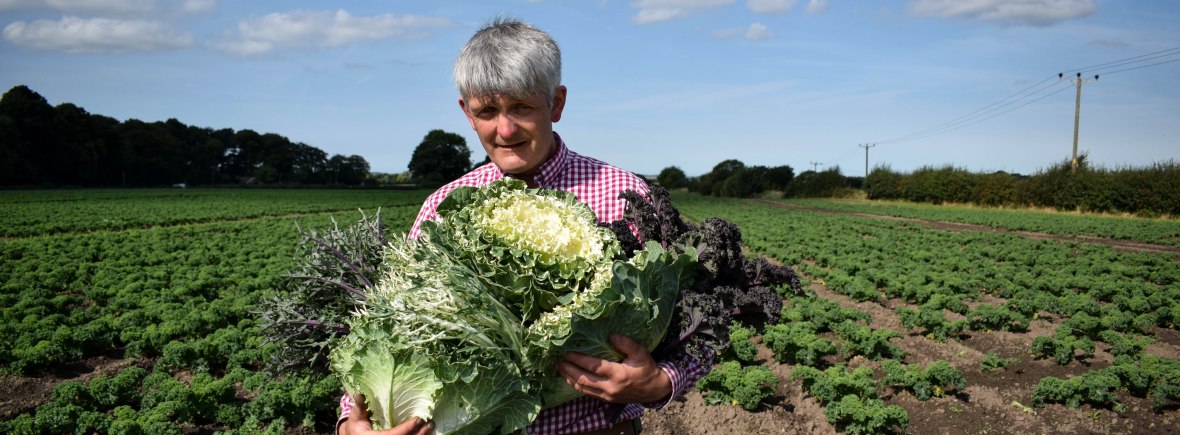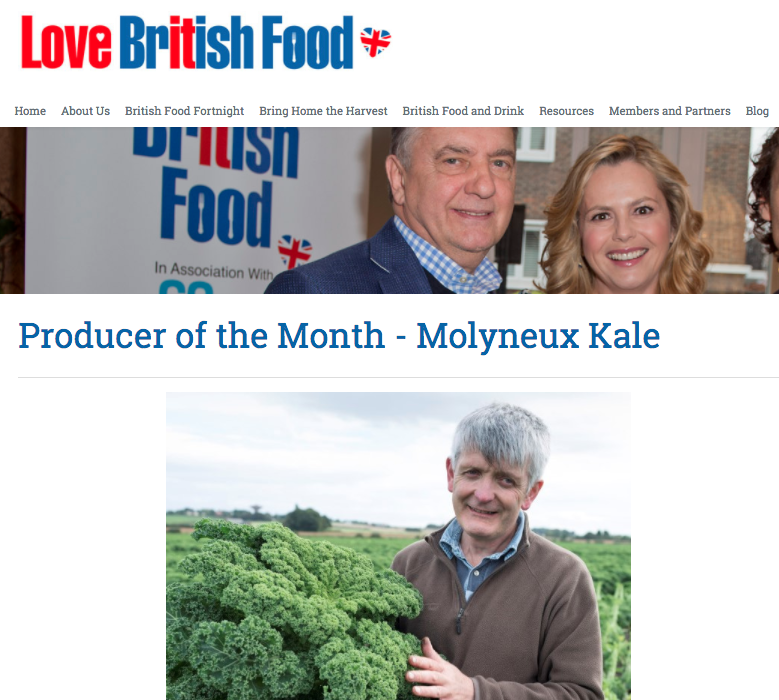Oxford Real Farming Conference Jan 2024
Chris was a speaker last week at the Oxford Real Farming Conference. The session he was part of was a review of regenerative agriculture and Strip Tilling in vegetable production. Sadly his session was not live-streamed so we cannot link you to it
Molyneux Kale named Producer of the Month by Love British Food
For the full story, click on the picture.
Over recent decades the majority of farmland ponds have become heavily overgrown rendering them poor in species. However, recent research by the UCL Pond Restoration Research Group (PRRG) in Norfolk has shown that restoration of farmland ponds by careful scrub and sediment removal has spectacular implications for biodiversity conservation at the landscape-scale covering invertebrates, plants, amphibians and even farmland birds (Sayer et al. 2012; Sayer et al. 2013; Davies et al. 2015).
The challenge now is to demonstrate and publicise the positive effects of farmland pond restoration elsewhere in the UK to help influence farmer/public awareness and importantly future agri-environment (AES) policy. This is where Molyneux Kale comes in, in Lancashire. The British Ecological Society (BES) funded “Great Twin Pond Dig” project will twin ponds and people in Bodham, Norfolk and at Chris Molyneux’s farm in Halsall, Lancashire, where similarly abundant “marl-pit ponds” are suffering from widespread overgrowth of trees and scrub rendering them lifeless and species-poor.
The methodology
The ‘Great Twin Pond Dig’ project will twin two pond areas of the UK that share the common feature of having 1000’s of small marl-pit ponds located in farmland. In each pond area four ponds will be selected for the study; two of which will be restored and two moderately overgrown pond which will be left as a control. Links will be made with local natural histories groups (e.g. Norwich Naturalist Society in Norfolk and West Lancashire Wildlife in Ormskirk), students, farmers (e.g. Holt Farmers Club and the Liverpool Agricultural Discussion Group (LADS)) and locals who will undertake a two year Before-After Control-Impact (BACI) study and in turn promote their project. Restoration will be undertaken in autumn 2017. To facilitate monitoring of water chemistry, invertebrates, plants and amphibians our participants will be provided with simple standardized equipment and methods (as used by the PRRG) and be given training in each area. In this way local natural historians will pass on knowledge to general public and farmer participants. Three project workshops and talks (before, during, end) will be held at both pond localities to get the project going and to feedback results.
The project aims to:
1) re-connect farmers and the public with farmland ponds and their species, in turn promoting wildlife-friendly land management;
2) demonstrate that pond restoration is equally effective in NW England as it is in Norfolk due to comparable ponds and issues;
3) facilitate a discussion on farmland pond conservation, exploring the barriers to restoration of overgrown agricultural ponds whilst addressing a general lack of support for ponds in AES.
“This project will engage myself and other farmers, with the local community and the wider general public so that we can learn from one another and increase our knowledge of pond restoration and biological recording on farmland. Until I met PhD student Helen Greaves from the UCL PRRG I had never really stepped inside the thick undergrowth and explored the pits within them. I had been wanting to gain advice about what to do with them for a long time as I felt they could be improved. By getting involved in this project, I am pleased that I can get directly involved in aquatic conservation and hopefully increase the amount of wildlife on the land I farm.”
For up-to-date information on the GTPD you can follow the UCL Ponds Blog or search Twitter for #GTPD, #adoptapond or #pondtwins. If you would like to attend events linked to the project, on our farm or locally, you can find a full list of events on www.GTPDLancs.eventbrite.com
Green Kale should stay Green 8/8/17
Molyneux Kale like other producers aims to ensure Kale is as fresh as possible when it leaves our farm, and we cool all our kale to ensure it reaches customers in the best possible condition, however we still get reports of kale yellowing when stored at ambient temperatures.
We have worked closely with our packaging supplier to develop a bag which balances the oxygen and carbon dioxide to prevent the kale yellowing over time. Not only that but it also reduces the misting in the bag. So the Kale stays green and looks great.
We are confident that our Kale will stay green longer than other bagged kale because of this innovation. Don’t just take our word for it – ask us to send you a sample…
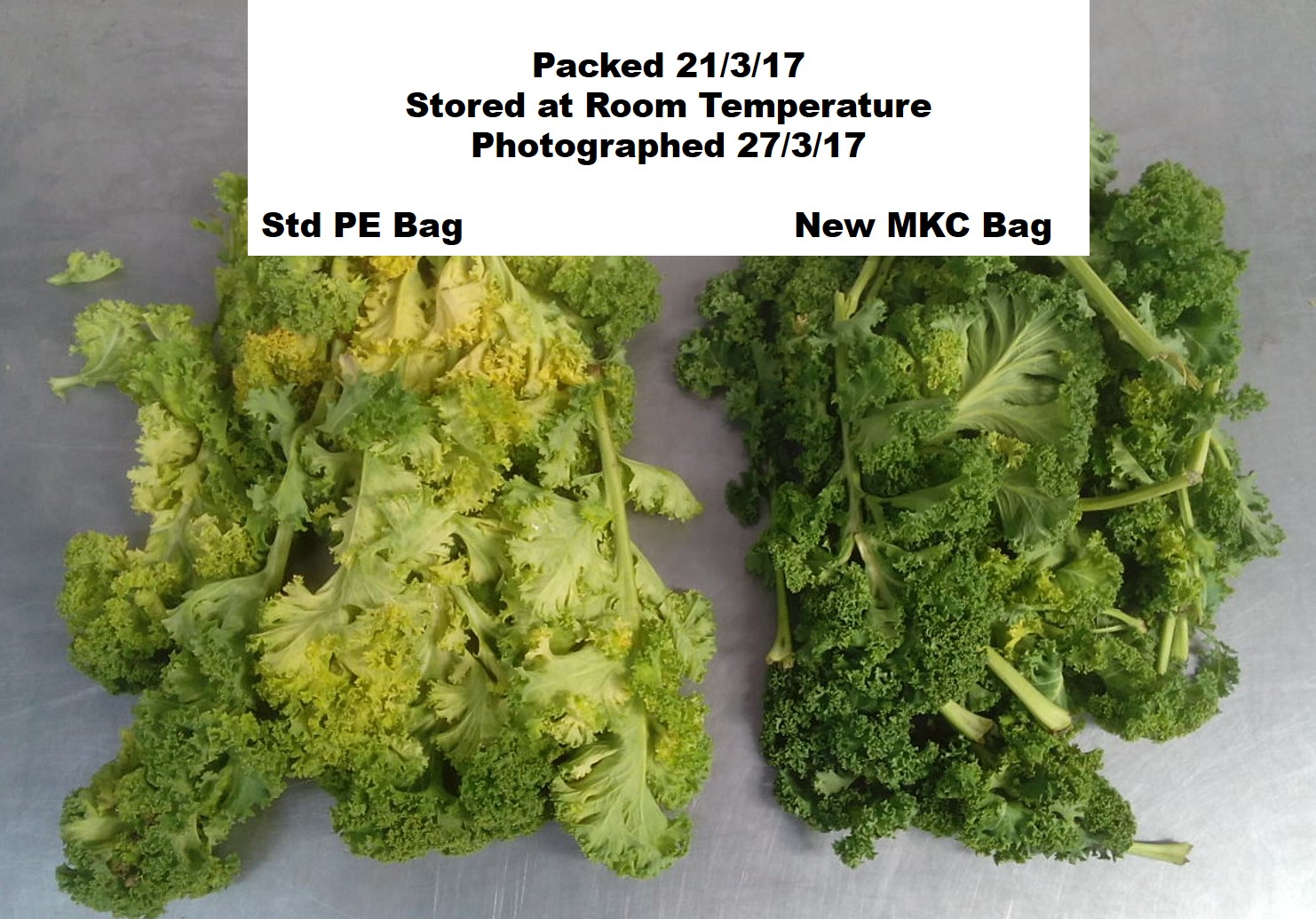
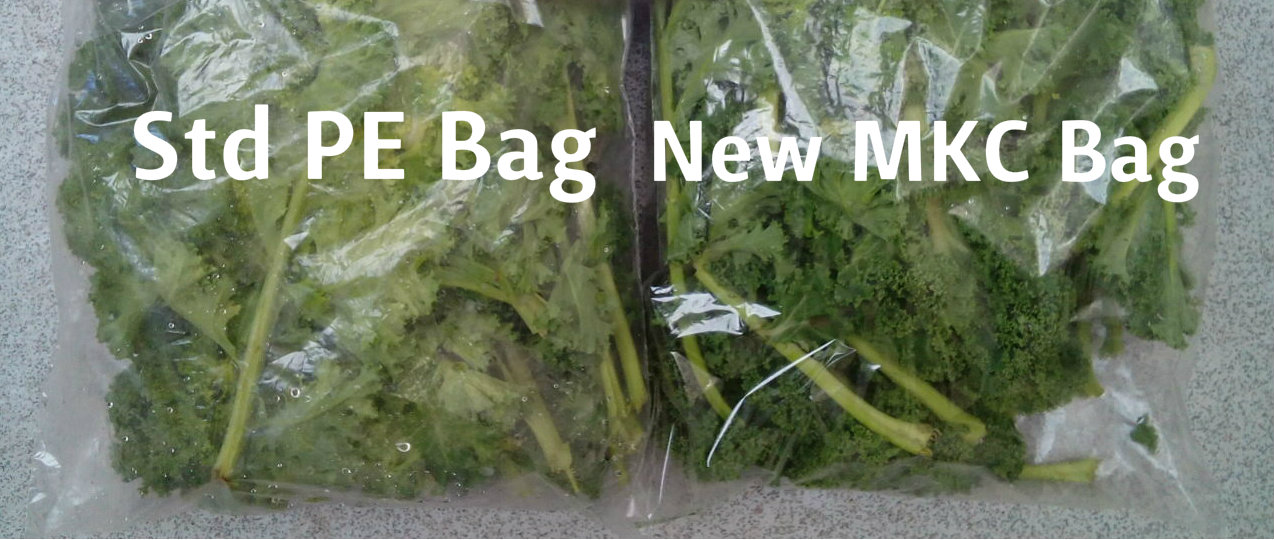
Sustainability update 10/5/17
Being sustainable is not a new thing. Our family have been farming in South West Lancashire for generations so looking after the soil and environment is something we look to maintain.
Each generation has done their part, and though the days of small scale mixed farms are over, the range of cropping in this area is very different to the so called “prairie monocultures” of arable farms.
Leaf Tracks No 466462
We are Leaf Marque accredited which means we apply a whole farm approach to improving the environment. One part is that we only use chemicals when we really need them, and only the most environmentally friendly options.
 We are always looking to improve further, and believe that there is real commercial benefit in looking after our soils and the environment.
We are always looking to improve further, and believe that there is real commercial benefit in looking after our soils and the environment.
Chris has already been working with the Great Soils initiative (a group looking to improve knowledge of Soil health). Watch Chris on the Great Soils website.
We have just sown a trial of different sorts of green manures – to build soil structure and health between crops of kale, and plan to update you with progress of this work.
Sowing annual green manure trial.
Growing kale, and working to improve soil health.
Great Soils Event – Laverstoke Park Hampshire 23/2/17
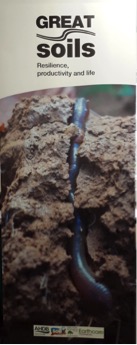
Last week we went along to an event looking at how to improve soil healthand sustainability. This is passion for us so we take every opportunity to learn more and discuss further ideas.
Below: Chris discussing ideas with other attendees, in the soil lab where Laverstoke Park carry out testing to find out how healthy soils are, by measuring the amount of life in them.
New Covent Garden Market – 23/2/17 – 6am
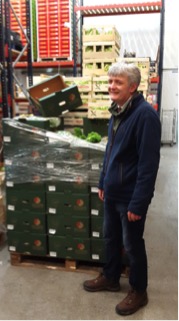
An early start en route to Laverstoke Park to meet up with some of our customers at New Covent Garden Market, right in the centre of London.
Picture of the market as we left at 7am – all their work over for the day, but we had only just begun, as we had to get to Hampshire to attend an event discussion Soil Health.
New Spitalfields Market – 24/2/17 – 6am
Another early start to visit customers on New Spitalfields Market in the the East End of London.
It was really busy, but we were happy to see that most of the Kale was ours, and all the customers we spoke to were really pleased with the quality we deliver, and the fact that it is UK grown all year round.
